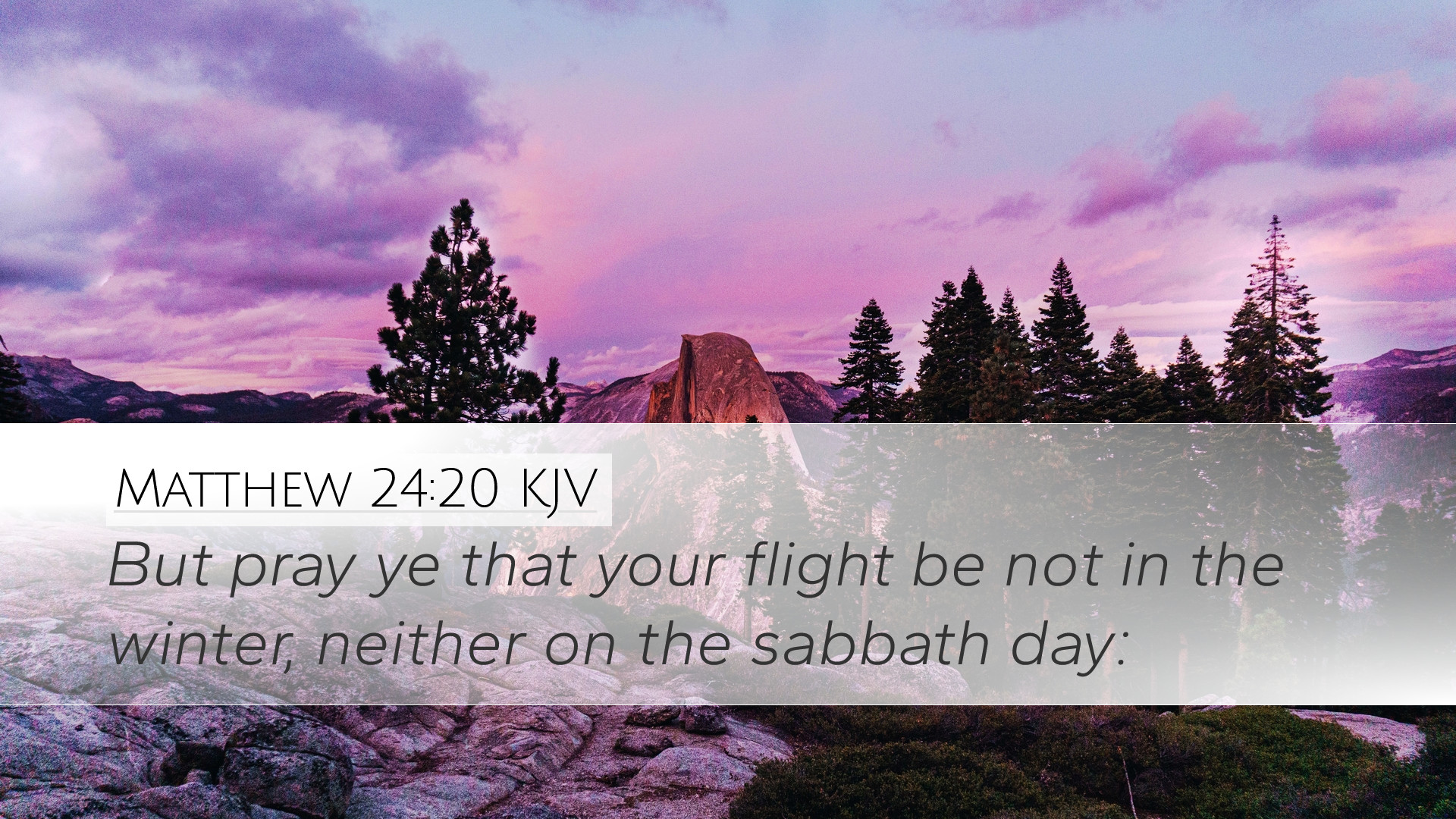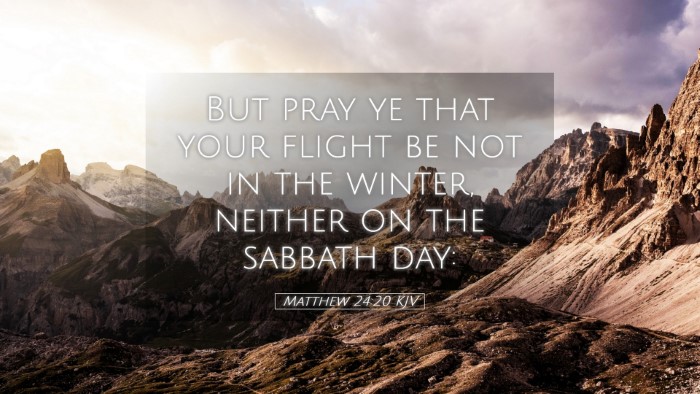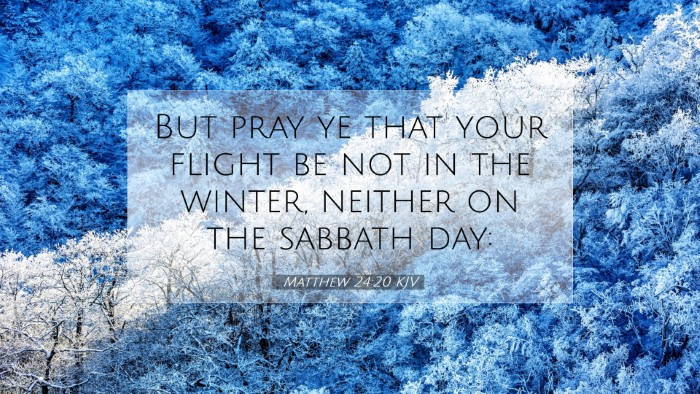Commentary on Matthew 24:20
Verse Context: Matthew 24:20 states, "But pray ye that your flight be not in the winter, neither on the sabbath day." This verse is part of Christ's discourse on the signs of the last days and the impending destruction of Jerusalem, which bears significant implications for believers.
General Overview
This passage emphasizes the urgency and the unique challenges of fleeing during a time of tribulation. The specific mention of winter and the Sabbath points to practical considerations in the lives of the Jewish people at that time. Scholars and theologians highlight the broader implications of preparedness in spiritual contexts.
Insights from Public Domain Commentaries
Matthew Henry's Commentary
Matthew Henry emphasizes the importance of prayer and spiritual readiness in anticipation of trials. He notes that the concerns for the timing of their flight relate to practical hardships associated with winter travel, such as cold weather, difficult terrain, and potential scarcity of resources. Winter is viewed as a metaphor for spiritual coldness, against which believers must guard themselves.
Henry also indicates that the mention of the Sabbath signifies the need for believers to remain sensitive to sacred obligations even amidst distress. He explains that the Sabbath, a day of rest, imposes certain restrictions that would complicate escape. Spiritual rest and the observance of God's commands should not be neglected, yet there is an urgent call to be ready for unexpected circumstances.
Albert Barnes' Notes on the Bible
Albert Barnes provides a more pragmatic viewpoint, emphasizing the historical context of this statement. He notes that the flight of Christians from Jerusalem would occur amidst the chaos of the siege, where times and conditions could severely hinder their escape. Barnes highlights that praying for favorable conditions reflects an understanding of divine providence and the need for reliance upon God's mercy during tribulations.
Additionally, Barnes discusses the notion of the Sabbath, explaining that while it is a day of rest ordained by God, God’s people must also be attuned to the urgency of maintaining their lives and safety. Hence, he suggests that there is a balance between honoring God’s day and the necessity to act in life-threatening situations.
Adam Clarke's Commentary
Adam Clarke focuses on the implications of the specific times referenced in Matthew 24:20. He elucidates that "winter" symbolizes a season of adversity, paralleling it with spiritual dormancy among believers. Clarke encourages readers to recognize that spiritual warfare often intensifies during 'dark' seasons of life and emphasizes the necessity for vigilance.
Clarke delves into the nuances of the Sabbath observance, reflecting on how the legalistic interpretation may hinder one's ability to respond to pressing needs. His commentary reflects on the flexibility of divine law in matters of life and death, suggesting that true adherence to God's commandments transcends rigid observance when mercy and necessity meet. He calls for a heart aligned with God's will, one that understands the importance of acting wisely within the frameworks of faith.
Theological Implications
Taken together, these commentaries provide rich theological insights into the nature of prayer, preparedness, and the balance between law and practicality in the life of a believer. The urgency to pray underscores a reliance on God’s guidance in uncertain times while also calling for action based on faith.
Application for Believers
- Spiritual Vigilance: Believers are encouraged to remain vigilant and spiritually prepared, understanding that trials can come at unexpected times.
- Prayer as a Response: The necessity of prayer is emphasized, indicating that believers should seek God's provision and guidance during difficult times.
- Understanding Seasons: Recognizing that spiritual winters can be challenging, believers should continue to seek warmth in their relationship with God and community.
- Flexibility in Obedience: The interpretation of how God's laws apply in certain situations is vital; believers are called to act with wisdom, knowing when to prioritize mercy and necessity over rigid adherence.
- Readiness for Change: Christians are urged to be adaptable and responsive to the leading of the Holy Spirit, especially when circumstances are not predictable.
Conclusion
Matthew 24:20 serves as a powerful reminder of the intersection between faith, prayer, and everyday life. The insights from various commentaries enrich our understanding of this pivotal scripture, urging us to act wisely, pray fervently, and remain prepared for the challenges that lie ahead. Overall, this verse offers profound counsel not just for the immediate context but for the continual journey of faith every believer navigates.


